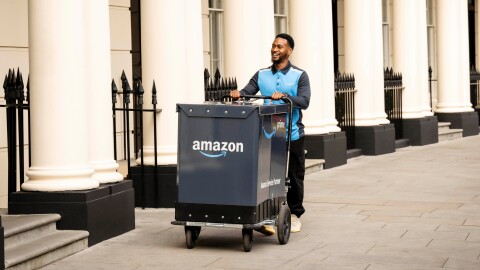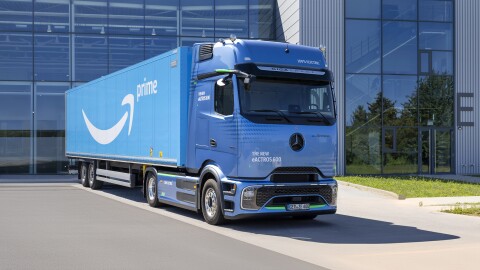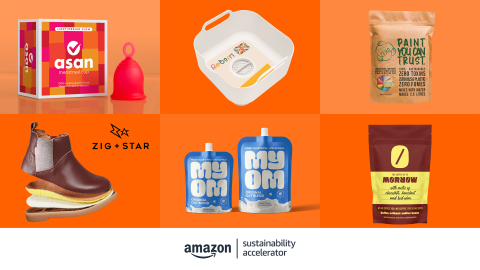Amazon and Global Optimism announced that 13 new signatories—Atos, Brooks, Canary Wharf Group, Coca-Cola European Partners, ERM, Groupe SEB France, Harbour Air, ITV, Microsoft, Neste, Rubicon, Unilever, and Vaude—have joined The Climate Pledge, a commitment to be net-zero carbon by 2040, a decade ahead of the Paris Agreement’s goal of 2050.
Signatories to The Climate Pledge agree to:
- Measure and report greenhouse gas emissions on a regular basis;
- Implement decarbonisation strategies in line with the Paris Agreement through real business changes and innovations, including efficiency improvements, renewable energy, materials reductions, and other carbon emission elimination strategies;
- Neutralise any remaining emissions with additional, quantifiable, real, permanent, and socially-beneficial offsets to achieve net-zero annual carbon emissions by 2040.
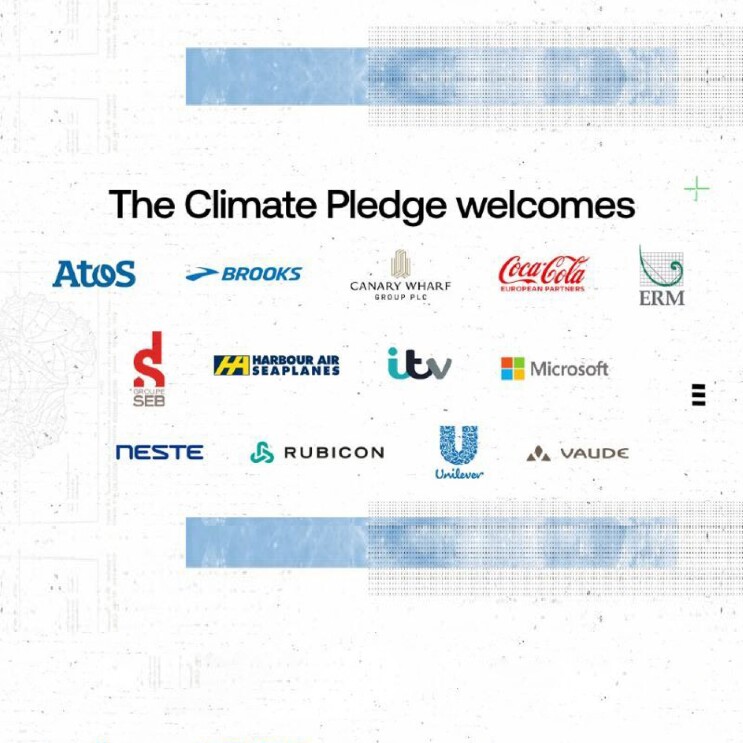
“Last year, Amazon and Global Optimism co-founded The Climate Pledge to encourage companies to reach the goals of the Paris Agreement ten years early. Today, we have exciting news: 13 more companies, including Unilever and Microsoft, are joining this commitment to confront climate change together and save the planet for future generations,” said Jeff Bezos, Amazon founder and CEO.
“There are now 31 companies from around the world that have signed The Climate Pledge, and collectively we are sending an important signal to the market that there is significant and rapidly growing demand for technologies that can help us build a zero-carbon economy.”
Atos
As a leader in secure and decarbonised digital services, Atos has made it its mission to pave the way for a carbon-neutral and sustainable economy through technology innovations. Committed to reducing its environmental footprint and helping businesses succeed in their climate ambitions, Atos uses dedicated digital solutions and highly specialised skills to offer one of the most comprehensive approaches to decarbonisation in the market. This year, Atos announced its commitment to net-zero carbon emissions by 2035 across scope 1, 2, and 3 carbon emissions, setting the highest decarbonisation standards for its industry and accelerating its decade-long environmental program.
Brooks
Brooks’ commitment to sustainability spans a decade, and the high-performance running brand recently adopted a roadmap to reduce scope 1, 2, and 3 carbon emissions in line with climate science, and to achieve net-zero carbon emissions by 2040.
Canary Wharf Group
Canary Wharf Group (CWG) is responsible for Europe’s biggest urban regeneration project in London, and it has delivered one of the largest environmentally certified portfolios in the UK, with over 10 million square feet of sustainably certified buildings to date. As part of its commitment to The Climate Pledge, CWG has launched its net-zero carbon pathway, setting out tangible steps to improve energy efficiency and reduce emissions, as to achieve net-zero carbon emissions by 2030.
Coca-Cola European Partners
Coca-Cola European Partners (CCEP) aspires to become net zero by 2040 across its entire value chain, and it will reduce its absolute greenhouse gas emissions by 30% by 2030, in alignment with a 1.5°C pathway and the Science-Based Targets Initiative. CCEP has already reduced its emissions across its value chain by 30.5% since 2010 by shifting to using 100% renewable electricity with the support of RE100; reducing the energy intensity of its cold drink equipment fleet by 60% since 2010; and reducing its use of virgin oil-based plastic by a third in its PET bottles.
ERM
ERM works with companies around the world to help them identify and address critical climate risks and opportunities. ERM’s deep experience in climate science, policy, and economics, coupled with its digital expertise, provides its clients with the tools and insights required to navigate the complexities of the transition to a low-carbon future. ERM is also acutely aware of its responsibility to reduce its own footprint through better energy management, so it has switched to renewable power and is seeking credible approaches to offset emissions from travel.
Groupe SEB France
Aware of its responsibility to create a more sustainable planet, Groupe SEB France is committed to reducing the environmental impacts stemming from its business activities. Since it established its first environmental commitments, Groupe SEB France has recorded a 21% decrease in the energy used at its industrial and logistics sites, exceeded its objective on recycling with 35% of recycled materials in its products and packaging, and exceeded its goal on the reduction of logistics-related carbon emissions, with a 33% reduction per unit sold.
Harbour Air
Named one of Canada’s best managed companies for 11 consecutive years, Harbour Air has been calculating and offsetting the airline’s carbon footprint for over a decade. In 2007, the regional airline became the world’s first and only carbon-neutral airline. Since then, Harbour Air has offset 100% of its emissions associated with seaplane fuel use and corporate operations. Last year, Harbour Air took its commitment to sustainability one step further and on 10 December, 2019, the airline successfully converted and achieved the world’s first flight of a fully electric commercial aircraft. The ePlane is now being certified and approved by the FAA and Transport Canada—a critical next step in Harbour Air’s goals to become the first fully electric commercial airline.
ITV
ITV, the UK TV company, believes that TV has a critical role to play not only in reducing emissions, but also in shifting culture and creating the new normal. ITV has committed to becoming net zero in operations, productions, and business travel by 2030. The company’s strategy for achieving net-zero emissions is to reduce its impact so that it is as close to zero as possible, in line with the latest climate science. The company will also sequester the emissions it absolutely cannot reduce through third party-verified tree planting and blue-carbon offsetting projects.
Microsoft
In January, Microsoft committed to be carbon negative by 2030 and remove from the environment all the carbon it has emitted directly or by electrical consumption by 2050. The company has been carbon neutral since 2012 and is committed to promoting sustainable development and low-carbon business practices globally through its cloud-enabled technologies. To meet the company’s ambitious commitments and help partners and customers meet their own climate goals, collaboration is key and its one of the primary reasons Microsoft is signing on to The Climate Pledge.
Neste
Neste, a global leader in renewable and circular solutions, is the first major energy company to sign The Climate Pledge. 15 years ago, Neste decided to transform from an oil company to a renewable products company. Since then, Neste has been consistently recognised for its pioneering sustainability leadership. The company has been included in the Dow Jones Sustainability Indices for 14 consecutive years and three years in the top three of the Global 100 list of the world’s most sustainable companies by Corporate Knights. Continuing on its journey, Neste has set two ambitious climate commitments: to reduce customers’ greenhouse gas emissions by at least 20 million tons annually by 2030, and to reach carbon neutral production by 2035. These goals are driven by Neste’s purpose to create a healthier planet for our children.
Rubicon
Rubicon is a software company that provides smart waste and recycling solutions for businesses and governments worldwide. Using technology to drive environmental innovation, they help businesses become more sustainable enterprises and
neighbourhoods into greener and smarter places to live and work. Through the design and implementation of circular solutions, which divert waste away from landfills, they help their partners cut greenhouse gas emissions and create a more sustainable world. Rubicon’s mission is to end waste by helping its partners find economic value in their waste streams and confidently execute on their sustainability goals.
Unilever
Unilever first set value chain greenhouse gas footprint targets from cradle to grave back in 2010, as part of the Unilever Sustainable Living Plan. These include halving the greenhouse gas footprint of its products across the value chain and to have no greenhouse gas emissions from its own operations by 2030. The latter target was introduced in a new strategy launched in 2015 ahead of the United Nations Climate Change Conference (COP 21) and included a shift to 100% renewable energy by 2030, with an interim milestone of 100% renewable grid electricity worldwide by 2020—which was achieved in January this year. In June this year, Unilever committed to net zero emissions from all its products, from sourcing to point of sale, by 2039.
Vaude
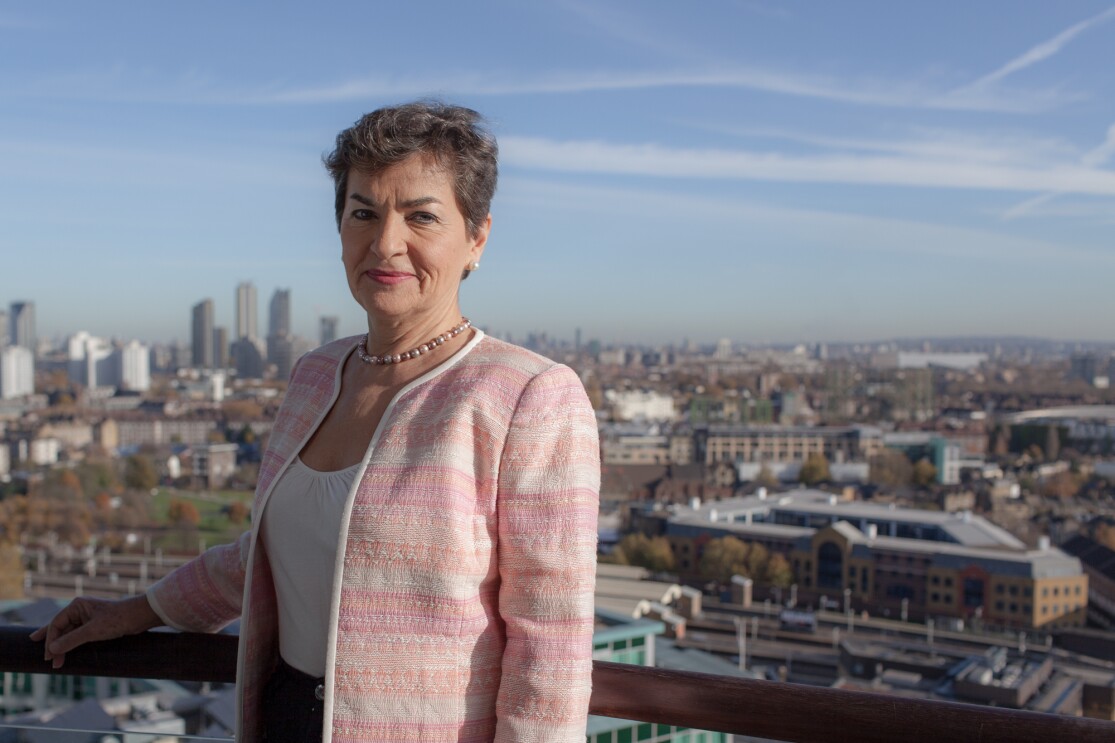
Vaude is committed to reducing its carbon emissions in line with the goals of the Paris Climate Agreement. Since 2012, the company’s headquarters has been certified as climate neutral. It has now set itself with an ambitious, science-based goal to produce all of its products worldwide with climate-neutral manufacturing.
“The Paris Agreement set out a unifying roadmap for all countries and all people to address the climate crisis by taking action,” said Christiana Figueres, the UN’s former climate change chief and Global Optimism founding partner. “By joining The Climate Pledge, signatories are not just making a statement of commitment to the future, they are setting a pathway to significant actions and investments that will create jobs, spur innovation, regenerate the natural environment, and help consumers to buy more sustainable products starting now.”
For more information on The Climate Pledge, visit www.theclimatepledge.com.



